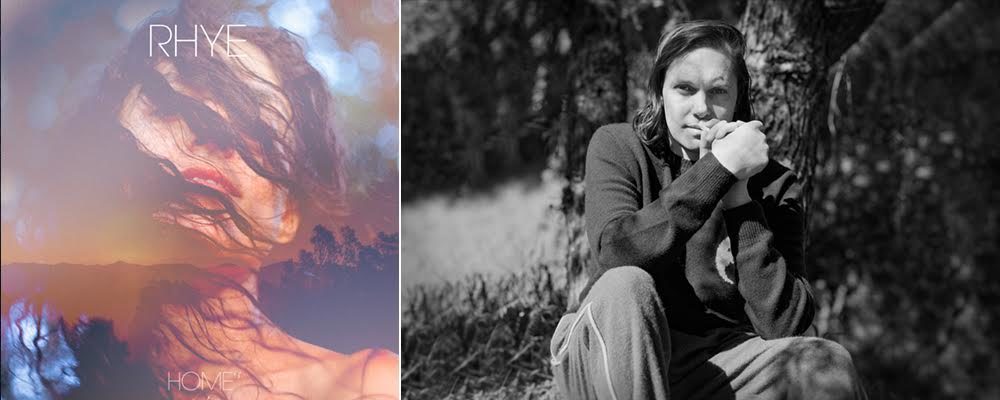Rhye’s ‘Home’ Brings Sensual, Intimate Vibes Into Our Pandemic Lives
Todd Gilchrist
In the absence of a new album by Sade, Rhye’s “Home” offers a placeholder for lovers looking for her iconic brand of postcoital musical bliss. Relocating in 2019 to L.A.’s storied Topanga from his native Toronto, singer, musician and producer Michael Milosh continues on his gender-defying journey to coo in listeners’ ears with a smoky, androgynous intimacy that only Ms. Adu can surpass, this time tapping into a sound that evokes Quincy Jones’ pristine, soulful 1980s production work. More nimble musically than much of the bedroom fare released over the final months of 2020 but still faithful to the small-scale dance party vibes that Milosh has cultivated since the release of “Woman” back in 2012, “Home” is an ideal album to lead fans into post-pandemic life without causing a shock to their system.
Featuring the Danish National Girls’ Choir on an intro and outro and a few tracks in between, Rhye could be mistaken for taking a pivot towards the liturgical. But as soon as Milosh’s voice picks up over percolating synthesizers and string arrangements on “Come In Closer,” it’s clear that secular romance, and romanticism, is the target of his creativity. “Oh how I’d love for you to come home with me,” he sings. “I’m right here.” If only by a matter of degrees, Milosh is more forward lyrically than his forebear Sade, but they share a very similar, low-pressure but silky sensuality, and he immediately creates a mood with the record that few others can match, or seem interested in trying to. That its vocal haze — a perfectly coordinated chorus of feminine harmonies — is created by Milosh alone feels like a triumph for him both as a performer and technician.
Milosh eases, unhurried, into the album with “Come In Closer” and “Beautiful,” romantic odes you can sink into like a hot bath, or glass of full-bodied red wine, before gently picking up the tempo with the tropical funk of “Safeword.” Afterward, “Hold You Down” again features the Danish National Girls’ Choir, but his voice becomes so immersive over the first few songs that you can only barely tell the difference when they join in. By the time he gets to “Need a Lover,” Milosh becomes a full-bodied troubadour, teaming with acoustic guitar over subdued string arrangements as he sings, “Hey hey need a lover / And a friend the next day.”
Next, “Helpless” is a masterpiece on the level of Michael Jackson’s “Lady In My Life,” not just because it shares a similar, velvety-warm bass line as backbone and high-pitched vocals that ooze with wonderfully counterintuitive masculinity, but because of songwriting and production that feels like a seduction and sincere romantic confession all at the same time. “Black Rain” starts off as a dancefloor concession, a necessary pivot after spending so much time in the bedroom, but if he’s participating in the disco renaissance, Milosh is clearly drawing from the fertile but forgotten period after the genre’s original popularity began to wane, when producers like Quincy Jones folded it into soul and r&b arrangements to create that luxurious, mature sound that became defined as adult contemporary in the early 1980s.
“Sweetest Revenge” subliminally quotes the classic Sade hit “Sweetest Taboo” while using a descending bass line that French artists Air and Daft Punk would get into a cage match over as Milosh finally gets a little petty amidst the rest of the record’s romantic altruism: “I’m sowing love I’m sowing love with my pain / There’s so much hate on your face / The sweetest revenge is living well.” It’s also the song where he lets some of the instrumentation loosen up a bit, as guitarist Patrick Bailey freely riffs string arrangements swirl, and an organ burbles around Milosh’s ephemeral voice. Some of that thrilling imprecision continues on “My Heart Bleeds,” featuring artificial handclaps and more synthesizer experimentation, leading into the sexiest moment on “Home,” “Fire,” where piano and strings pirouette as he sings, “Can you feel my fire deep inside / Can you feel my fire growing high.”
Bringing back the Danish National Girls’ Choir for the last song and his outro, Milosh offers an intriguing coda with “Holy,” a song where he encourages a lover to cut loose everything that might be holding her back — his perceptions (“Don’t be holy for me / Don’t be so good”), her expectations (“Don’t you tell me that you’re chasing someone’s dreams”), and finally, an imaginary ticking clock (“don’t you know we’re on our own time, oh we’re sacred”). Milosh’s confidence in packing it at the end of the album, and providing the Girls’s Choir as a backdrop for its sentiment, gives it an almost religious tone, a necessary benediction at a time when people are so restless but likely so far off track from what their goals may be personally, much less romantically. But it’s also what the album has been building towards, and for better or worse, what the last year has been building towards. Sexy, patient and generous, “Home” provides Rhye fans with comfort and warmth, reminding them of the simple and small pleasures that are easy to overlook or forget, but also providing the tools to re-enter the world, while letting them know that the right time to do so is whenever they’re ready.
“Home” releases Jan. 22 on Apple Music.

